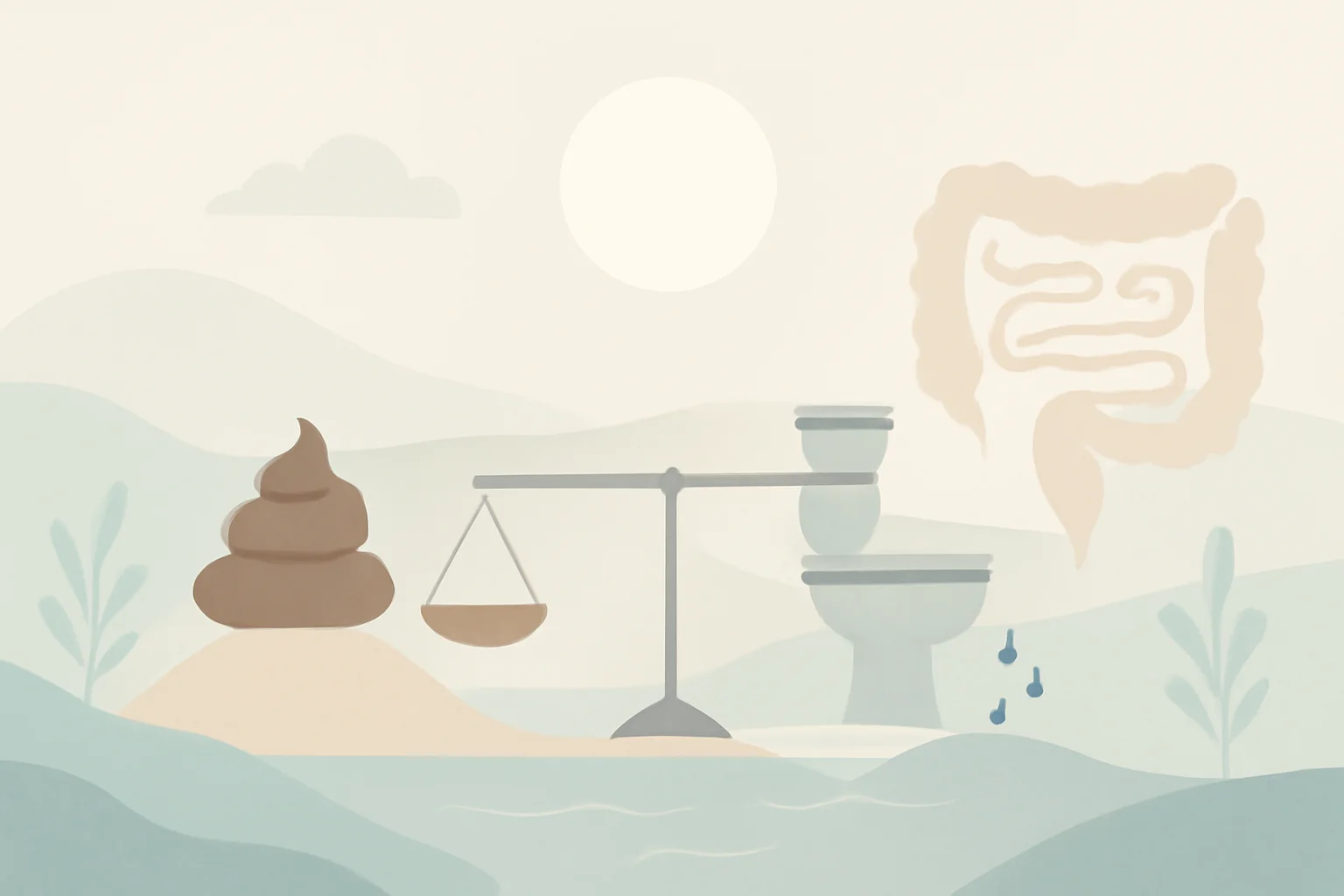
Constipation or Diarrhea? Tips for Managing Gastrointestinal Issues
A proper functioning of the digestive system is extremely important for human health. Proper digestion and regular bowel movements are fundamental factors in maintaining well-being and a healthy lifestyle. However, many people struggle with various digestive issues, among which constipation and diarrhea are the most common. These disorders not only cause physical discomfort but can also significantly impact quality of life.
Disruptions in bowel function can be attributed to various causes, including dietary habits, stress, and lifestyle. Constipation is typically associated with a decrease in bowel movements, while diarrhea results from excessive bowel activity. Both conditions have different symptoms, causes, and treatment options, and understanding them can help make informed decisions.
Maintaining the health of the digestive system is crucial, and it is important to pay attention to the signals our body sends. Understanding constipation and diarrhea, as well as exploring options for prevention and treatment, can contribute to improving daily quality of life.
What is constipation?
Constipation is a common digestive problem characterized by a decrease in bowel movements. Stools become less frequent, and bowel movements can become difficult and painful. The causes of constipation can vary widely, including poor diet, lack of exercise, stress, and certain medication side effects.
Common symptoms of constipation include less frequent bowel movements, abdominal pain, bloating, and hardness of stools. For some individuals, constipation can be a chronic issue, while for others, it may present as a temporary phenomenon.
Diet plays an important role in the treatment of constipation. Foods high in fiber, such as vegetables, fruits, and whole grains, can help stimulate bowel movements. Additionally, proper hydration is essential, as water helps soften stools, making bowel movements easier.
Exercise also plays a key role in maintaining the health of the digestive system. Regular physical activity stimulates bowel movements, helping to prevent constipation. Stress management is also important, as stress often contributes to digestive issues.
What is diarrhea?
Diarrhea is another common disorder of the digestive system, characterized by an increase in the water content of stools and an increase in the frequency of bowel movements. Diarrhea can be attributed to various causes, including viral or bacterial infections, food allergies, intolerances, and certain medication side effects.
Common symptoms of diarrhea include frequent, watery stools, abdominal cramps and pain, and sometimes fever. Diarrhea is usually a temporary issue, but a chronic form can exist, indicating longer-term digestive disturbances.
The treatment of diarrhea primarily focuses on identifying and addressing the underlying cause. Proper hydration is crucial, as the body can quickly lose fluids and electrolytes during diarrhea. The use of rehydration solutions can help replenish lost fluids.
Diet also plays an important role in the treatment of diarrhea. Low-fat, easily digestible foods, such as bananas, rice, apples, and toast (the BRAT diet), can help alleviate diarrhea. Additionally, it is essential to avoid fatty, spicy foods and caffeinated beverages, which can irritate the digestive system.
Constipation and diarrhea: causes and prevention
The connection between constipation and diarrhea is an important aspect of digestive health. Numerous factors can contribute to the development of both disorders, and lifestyle changes are essential for prevention.
Choosing the right diet is crucial for regulating bowel function. Foods rich in fiber, such as vegetables and fruits, improve bowel movements, while increasing fluid intake helps prevent constipation. A balanced diet is also important for preventing diarrhea, as it reduces the risk of digestive disturbances.
Physical activity also contributes to the health of the digestive system. Regular exercise stimulates bowel movements, thereby reducing the risk of constipation, while stress management can help prevent the development of digestive issues.
Stress and mental state also influence digestion. Stressful situations often contribute to digestive disorders, so it is important to employ appropriate stress management techniques, such as meditation or breathing exercises.
Treatment options for constipation and diarrhea
There are several options available for treating constipation and diarrhea. The first step is to establish an accurate diagnosis, which helps uncover the causes and select appropriate treatment methods.
In the case of constipation, diet and fluid intake are crucial. Incorporating fiber-rich foods and ensuring adequate hydration can significantly improve bowel function. Additionally, various over-the-counter laxatives can provide temporary relief, but their long-term use is not recommended.
The treatment of diarrhea primarily focuses on fluid replacement and dietary changes. Rehydration solutions and easily digestible foods can help restore the digestive system. If diarrhea persists, it is important to consult a doctor, as this may indicate a more serious problem.
Natural remedies can also assist in the treatment of constipation and diarrhea. For example, consuming probiotics can positively affect the balance of gut flora, while herbs like chamomile or peppermint may help alleviate digestive complaints.
It is important to note that the treatment of constipation and diarrhea varies from person to person, so it is always advisable to consult a professional for appropriate advice and treatment options.
**Warning:** This article does not constitute medical advice. Always consult your doctor for health problems!

